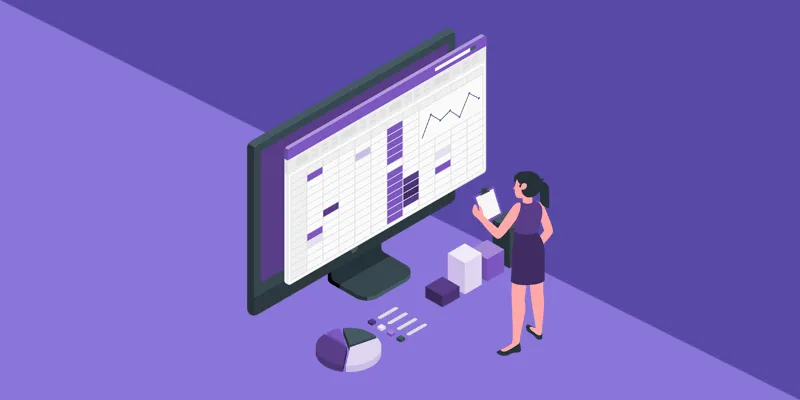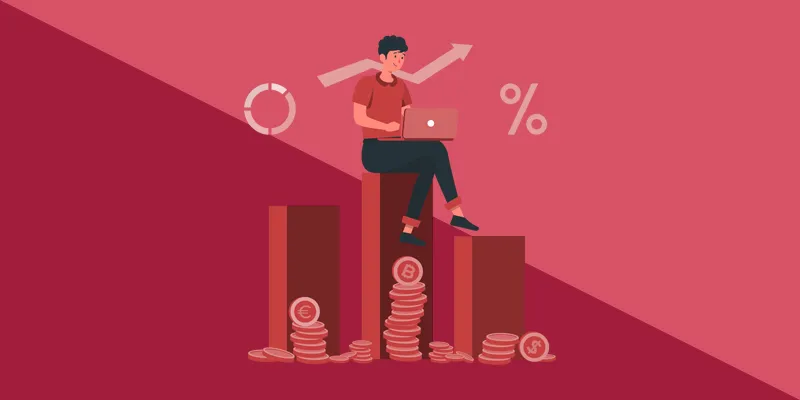The CPA (Certified Public Accountant) and the MBA (Master of Business Administration) are perhaps two of the best-known credentials that professionals use to accelerate their career in business or finance.
But they’re different types of credentials that serve very different purposes. The CPA is a professional license that demonstrates technical expertise in accounting, whereas an MBA is an academic degree that builds leadership skills and opens doors across industries.
So which one is better for you?
To answer that we’ve created an 11-point framework to compare the CPA vs MBA side by side. The aim of this is to help you identify which (if either) of these two paths is best aligned with your career goals.
We’ll look at everything from what they’re for, the skills they give you, and how long they take, through to the costs involved, the career paths they open up, and how they can impact your salary.
- CPA vs MBA: quick comparison
- 1. Where do you see your career going?
- 2. Requirements: how to qualify & earn a CPA vs MBA
- 3. Timeframes: how long does each one take?
- 4. Difficulty: which is harder, CPA or MBA?
- 5. Cost breakdown: CPA vs MBA expenses
- 6. Curriculum & skills: what you'll learn
- 7. Career paths: typical roles for CPAs and MBAs
- 8. Salary comparison: will you earn more with a CPA or MBA?
- 9. Recognition & networking: how employers value the CPA vs MBA
- 10. ROI: does a CPA or MBA provide better value?
- 11. CPA and MBA: can (and should) you do both?
- Verdict: CPA vs MBA – which one is right for you?
- CPA vs MBA: FAQs
CPA vs MBA: quick comparison

Before we get into the finer details, here’s a side-by-side look at the key differences between the CPA and MBA. We’ll dive into each of these more thoroughly throughout the article, but this gives you a quick sense of how they stack up:
| Aspect | CPA (Certified Public Accountant) | MBA (Master of Business Administration) |
|---|---|---|
| Type | Professional license | Academic degree |
| Focus | Accounting, auditing, taxation, financial reporting | Broad business knowledge, finance, strategy, marketing, leadership, operations |
| Entry Requirements | Bachelor’s degree with accounting coursework; state/professional body eligibility | Bachelor’s degree in any field; competitive admission (GMAT/GRE, essays, work experience) |
| Time to Complete | 1-2 years, often alongside full time work | 1-2 years full-time, or 2-4 years part-time/Executive |
| Cost | $2,150.56-$8,170.56 | $100,000-$200,000+ |
| Skills Gained | Technical accounting mastery, compliance, audit expertise | Leadership, strategic thinking, management, networking, cross-functional business skills |
| Career Pathways | Audit firms, tax advisory, corporate accounting, forensic accounting, CFO/controller roles | Consulting, investment banking, entrepreneurship, corporate leadership, operations, marketing |
| Networking & Brand | Strong within accounting/finance circles; recognition depends on jurisdiction | Alumni networks, global recognition, brand prestige of the business school |
| Salary Potential | 10-15% higher than non-CPAs with good growth over a career. | Often significant boost (sometimes doubling) post-MBA, especially from top schools. |
| ROI | Lower upfront cost, steady and reliable returns for finance/accounting careers. | ROI varies, but is generally high. Strongest for elite programs and high-paying industries, less predictable at mid-tier schools. |
| Global Recognition | Stronger in the U.S. | Recognized internationally |
1. Where do you see your career going?

Before you start thinking about things like exam prep, tuition fees, or how many late nights you’ll be putting in, pause and ask yourself: where do I actually want my career to go?
The answer to that question might do more to guide your decision about which credential to pursue than any other comparison. Because whether the CPA vs MBA is the better choice ultimately depends on which one gets you to where you want to be.
Roles and industries
If you picture yourself in accounting, audit, tax, corporate finance, or compliance, then the CPA is the obvious choice.
These fields demand technical expertise, and the CPA is the accounting credential that proves you’ve got it. It tells employers you can handle complex regulations, keep the books accurate, and carry real responsibility for the numbers. That credibility is also what opens doors to roles like controller or CFO down the line.
But if your dream is to move into business leadership or management (whether that’s consulting, finance, technology, operations, or even running your own company), then an MBA is often a better fit. It’s designed to help you think strategically, lead teams, and step straight into decision-making roles.
Technical depth vs leadership breadth
- The CPA is about depth in a specific discipline. It equips you to be fluent in the technical details of accounting, financial reporting, auditing, and compliance.
- The MBA is more about breadth and leadership. It helps you to develop strategic insight, prepares you to lead organizations, and enables you to build and leverage networks.
Being clear about where you want to go in your career, what you’re passionate about, and what you’re good at will make it a lot easier to decide if the CPA or MBA is the best fit for you.
That might sound simple, but of course in reality it’s not always that straight-forward to know where you want to go. So let’s keep digging and see how the CPA and MBA compare in other ways.
2. Requirements: how to qualify & earn a CPA vs MBA

Whether you want to become a licensed CPA or earn your MBA, each comes with its own set of hurdles to clear. This includes the requirements you’ll need to meet just to get started, as well as what you’ll need to do before you can actually put either credential on your résumé.
Before you even begin either the CPA vs MBA, the two paths start to feel very different. The CPA has fairly specific requirements, including those around the educational background you’ll need.
Meanwhile the MBA is a little more open in regards to academics, but can be a lot tougher in terms of competition and what you need to do to get your place on the course.
Here’s a quick overview:
| Requirement | CPA | MBA |
|---|---|---|
| Education | For exam: Bachelor’s degree (120 credit hours) in accounting or related subject. For license: 150 credit hours (e.g. a Master’s). | Bachelor’s degree in any field. No specific major required. |
| Other entry requirements | None. | – 2–5 years’ work experience – GMAT/GRE score – Essay/written application – Interview – Letters of recommendation |
| Exam | CPA Exam: 4 sections (3 core + 1 discipline), 4 hours each. | No standard final exam is required to graduate, but some schools include tests as part of the program. |
| Coursework | None. | Core courses in finance, strategy, leadership, marketing, plus electives/projects. |
| Experience | – None to apply for CPA exam. – 1–2 years of accounting/finance experience, supervised by a CPA required to get your license. | – 2–5 years required before entry. – None required as part of program. |
| Ethics | Most states require a separate ethics exam before you get your license. | None. |
| Ongoing | Around 40 hours of Continuing Professional Education (CPE) per year to maintain a license. | None. |
Let’s take a closer look at the specific requirements you’ll need to meet for the CPA vs MBA. To help break it down further, we’ll split each one into two parts:
- Requirements to apply (the entry criteria to get in the door).
- Requirements to finish (what’s involved in actually earning the credential).
CPA requirements
The CPA has two sets of requirements; one to apply for the exam, and then another set you’ll need to meet to actually get your license. CPA requirements actually differ slightly from state-to-state, but here’s what most people can expect:
Requirements to apply for the CPA exam:
- Education: A relevant bachelor’s degree with at least 120 credit hours (most states).
- In practice, this usually means a degree in accounting or a closely related subject.
- If your degree is in another field, many states require you to complete a certain number of specific accounting and business courses (like auditing, taxation, financial accounting, or business law) before you’re allowed to sit the exam.
Requirements to complete and get your CPA license:
- Education: A total of 150 credit hours is required to be licensed. Many candidates meet this with a master’s degree or by taking additional coursework after their bachelor’s. You can usually do this either before or after you take the exam, but you must complete it before getting your license.
- CPA exam: You’ll need to pass the Uniform CPA Exam. There are four sections (three core and one discipline of your choice). Each is four hours long and you can take them in any order.
- Experience: Most states require 1–2 years of supervised accounting experience, usually under a licensed CPA. Some states insist on public accounting, but others accept corporate, government, or academic roles.
- Ethics: In most states, you’ll also need to pass a separate ethics exam or course before you can get licensed.
- Ongoing requirements: After licensing, expect to complete about 40 hours of continuing professional education (CPE) every year to keep your license active.
MBA requirements
Getting into a good MBA program isn’t as much about ticking boxes as getting a CPA license is. It’s more about demonstrating to an admissions committee that you’ve got the experience and potential to succeed.
That means there’s usually a bit more required to apply for an MBA than the CPA before you can actually begin the program. Here’s what that usually looks like:
Requirements to apply for an MBA program:
- Education: A bachelor’s degree in any subject.
- Experience: Most schools prefer 2–5 years of work experience, ideally showing leadership or career progression.
- Test scores: In some cases you’ll need to pass a test such as the GMAT (Graduate Management Admissions Test) or GRE (Graduate Record Examination), although not every program requires this and it can sometimes be waived.
- Interview: You’ll usually need to attend an interview (or in some cases several) so the school can assess that you’re the right fit for the program.
- Additional requirements: Some schools may require you to meet other requirements as part of the application process, including:
- Essays or a written application that explains why you’re a good fit for the program.
- Letters of recommendation (often from current or former managers, sometimes colleagues or professors).
Requirements to complete and earn your MBA:
- MBA Program: Typically 1–2 years full-time, or 2–4 years part-time/executive.
- Coursework: Core classes in finance, strategy, marketing, and operations, plus electives and group projects. Many programs also include a capstone project or thesis.
- Exams: There isn’t a uniform exam in the same way that there is with the CPA, however some schools include tests at the end of modules or sections of the program.
- Ongoing: No formal continuing education is required after graduation, though most schools encourage lifelong involvement through alumni networks.
How CPA vs MBA requirements compare
While both the CPA and MBA require a bachelor’s degree to get started, that’s mostly where the similarities end.
The requirements to become a CPA are very much rule-based and focused on meeting technical thresholds. You need a set number of credit hours in specific topics at degree level, supervised work experience, and to pass a the Uniform CPA Exam (as well as an ethics exam in most cases). All of these requirements are clearly defined by state boards of accountancy.
So while the CPA certainly isn’t easy, as long as you’re able to meet all of the defined criteria then you should be able to get your license.
An MBA, on the other hand, is a lot more admissions-driven. This involves demonstrating your potential and leadership on an individual level; schools look at your work experience, test scores, essays, and personal story to decide if you’re a good fit.
Admission can be highly competitive, especially for top-tier business schools. So strong academic performance, professional achievements, and clear career motivation, all make a big difference but don’t necessarily guarantee you a spot.
3. Timeframes: how long does each one take?

Assuming you’ve got all the eligibility requirements ticked off, another big consideration of comparing the CPA vs MBA is just how long each path will actually take, and how much time you’ll need to commit.
This is another area in which the CPA vs MBA differ quite significantly. And that primarily comes down to the way in which both are structured.
Leaving work experience aside for a moment, here’s how much time you’ll realistically need to commit to the CPA vs MBA:
| Aspect | CPA | MBA |
|---|---|---|
| Study / program hours | 300-500 study hours in total (about 80-120 for each of the four sections). | Thousands of classroom and study hours across 1-2 years full-time, or longer part-time. |
| Overall duration | Usually 1-2 years to pass all four exam sections. | 1-2 years full-time, 2-4 years part-time/Executive. |
| Completion window | 18-30 months (state-dependent) to finish all sections after passing the first. | Program length fixed by school, no rolling deadline. |
| Flexibility | Can study and sit exams alongside full-time work. | Full-time often means leaving work. Part-time/Executive options let you keep working. |
About 1-2 years to earn a CPA license
Because the CPA exam is modular, most candidates spread it across 1-2 years, fitting in study time alongside a full-time job. That means you can continue building experience (and earning a salary) while working toward your license.
One area in which the CPA generally has the edge over an MBA is flexibility. Preparing for the CPA exam usually takes around 300-500 study hours in total (about 80-120 per each of the four sections), and you can schedule these around your work and life commitments.
The only catch is that once you pass your first section, you have a rolling 18-30 months (depending on your state) to pass the other three.
Usually 1-2 years to earn an MBA
The MBA is a very different commitment. A full-time MBA means 1-2 years out of the workforce. That can represent a big opportunity cost in both time and lost income.
Part-time and Executive MBAs let you keep working, but then you’re looking at 2-5 years (or more) of juggling classes, projects, and your day job (a part-time MBA will require around 15-25 hours a week).
Wait, isn’t that about the same?
Kind of, but what you’ll be doing in that time is very different.
The CPA often stretches over 1-2 years, but remember: you’re usually doing it while working. With an MBA, even though the program may be two years as well, it usually means stepping away from your career and salary completely (unless you go part-time, in which case it can take two or three times longer).
In practice:
- CPA: takes a year or two, but you can keep working.
- MBA: often 1-2 years full-time (or longer part-time), with a much bigger opportunity cost.
How work experience factors in
An MBA often requires around 2-5 years of work experience before you can even start (it’s not compulsory, but most schools like to see some relevant experience as part of your application).
The CPA doesn’t require work experience to register for the exam. But it does usually require 1-2 years of experience to apply for your license. However, most people complete that while they’re studying, which makes it a bit more time efficient.
- Doing an MBA full-time takes about as long as a CPA (12-24 months).
- Doing an MBA part time will take about twice as long as the CPA.
- The big difference here is whether you’re able to (and want to) commit to doing something full time, or prefer to do it alongside your job.
4. Difficulty: which is harder, CPA or MBA?

This one’s tricky, because “harder” depends on what kind of challenge you find most difficult. The CPA and the MBA test you in very different ways.
How difficult is the CPA?
The CPA exam has a reputation for being one of the toughest professional exams in business and finance. You need to pass four separate sections, each four hours long, covering a wide range of topics from auditing and tax to financial reporting and regulation.
Average pass rates for the CPA are around 45-55%, even though nearly everyone taking it already has an accounting-heavy degree.
The difficulty isn’t just in the content, it also comes from the level of discipline required. You’ll need to put in 300-500 hours of self-study, often while working full-time, and complete all four sections within a rolling 30-month window of passing the first (in most states, but some have an even stricter 18-month window).
That means staying motivated and putting the hours in is pretty much all on you to manage yourself. And that can get tough.
How difficult is an MBA?
Getting an MBA is less about passing a single high-stakes exam and more about getting through the admissions gate in the first place.
For competitive programs, that means scoring well on the GMAT or GRE, crafting strong essays, securing persuasive letters of recommendation, and impressing in your interview. Plus you’ll ideally need to have some relevant experience under your belt.
Once you’re in, the difficulty of the MBA comes from the intensity of the program rather than pass/fail odds. Expect long hours, group projects, constant networking, and a heavy workload across multiple business disciplines.
Most MBA candidates do graduate, but the pressure is real, especially in top-tier programs where competition among classmates can be fierce.
So which is actually harder?
- If you define “hard” as passing a standardized test with low pass rates and strict requirements, based almost entirely on self-study, the CPA could be considered harder.
- If you define “hard” as getting through a tough admissions process for a top school and then handling an intense, all-consuming environment, the MBA may feel tougher.
5. Cost breakdown: CPA vs MBA expenses

Cost is often one of the biggest deciding factors when weighing up the CPA vs MBA, and the difference here is stark.
For most people, doing the CPA is significantly cheaper than an MBA. In fact, it can be anywhere from 10 to 50 times cheaper.
Let’s break it down.
| Cost | CPA | MBA |
|---|---|---|
| Application / registration fees | $50-$400 (varies by state) | $100-$250 per application (most schools) |
| Exam fees | (4 @ $262.64 per section)$1,050.56 total | N/A |
| Study materials / prep | $1,000–$6,000 (optional but recommended) | N/A |
| Ethics exam / course | $0–$320 (required in most states) | N/A |
| License fees | $50-$400 | N/A |
| Tuition & program costs | N/A | $30,000-$150,000+ depending on school |
| Living expenses | Minimal (can usually work while studying) | $20,000-$40,000+ per year if full-time |
| Opportunity cost | Low: you can usually keep working | High: loss of 1-2 years of salary for full-time MBAs |
| Total estimated cost | $2,150.56 – $8,170.56 | $100,000 – $200,000+ |
CPA cost breakdown: $2,150-$8,170
While it’s by no means cheap, becoming a CPA is relatively affordable compared to an MBA. Typical CPA costs run between $2,150 and $8,170, depending on your state and the study materials you choose.
Here’s what usually makes up that total:
- Application and registration fees: $50-$400 (varies by state).
- Exam fees: $262.64 per section. With four sections that’s $1,050.56 in total.
- Study materials: $1,000-$6,000, depending on the prep course you go for.
- Ethics exam/course: $0-$320 (required in most states)
- License fees: $50-$400.
Most candidates end up spending somewhere in the range of $3,000-$7,000 all-in, which actually makes the CPA a relatively cost-effective professional credential.
MBA cost breakdown: $100,000-$200,000+
When it comes to financial costs, an MBA is in another league.
Tuition alone at U.S. schools can range from $30,000 to $150,000+, with top-tier programs often well into six figures for a two-year MBA.
On top of tuition, you’ll also need to budget for your living expenses while you study. Of course, you’d have to pay for rent, food, and transport no matter what you were doing. But if you’re in a full-time MBA, you’re probably not earning a salary, which makes those costs feel much heavier.
As a practical example, here’s a breakdown of annual costs from Harvard Business School for their MBA program in the 2025-2026 academic year:
- Tuition: $78,700
- Course & Program Materials Fee: $2,800
- Student Health Fee: $1,800
- Student Health Insurance Plan: $4,308
- Housing: $18,900
- Food: $9,100
- Transportation: $2,360
- Other Living Expenses: $8,568
- Computer: $1,500
- Total: $126,536
Opportunity cost: a big difference between CPA & MBA
On top of these direct costs, it’s also important to consider the opportunity cost. For most people doing a full-time MBA, that means giving up one or two years of salary while you’re in school.
Depending on your career level, that could easily add up to tens, or even hundreds of thousands of dollars on top of the tuition bill. It’s one of the biggest hidden costs of an MBA, and one that doesn’t always show up in the headline numbers.
So when you factor in two years of tuition, living expenses, and lost salary, it’s not unrealistic for a full-time MBA program at a top-tier school to cost $400-$500k all-in.
For the CPA, the opportunity cost is low. You can usually keep working while you study for your CPA, so you won’t incur additional costs through loss of income while you get your license.
6. Curriculum & skills: what you’ll learn

So, the CPA and MBA come with very different price tags. But what exactly are you paying for?
The answer to that partly lies in the curriculum and the way it’s delivered, and this is where the two paths really start to diverge.
The CPA is primarily a self-study journey that drills deep into accounting, audit, and regulation. The MBA, on the other hand, is usually a structured program taught by expert faculty that covers the full spectrum of business, with classes and projects designed to develop leadership and strategic thinking skills in particular.
Here’s an overview of what you’ll cover in each:
CPA curriculum: specializing in accounting
The CPA exam is built around four sections. There are three core areas that everyone must complete, plus one discipline you choose (from three options) to specialize in. Together, they’re designed to ensure you have mastery over the accounting and financial reporting profession.
Core sections:
- Auditing & Attestation (AUD): How to plan and perform audits, evaluate evidence, and issue audit opinions. This section builds skills in risk assessment, internal controls, and assurance.
- Financial Accounting & Reporting (FAR): U.S. GAAP, financial statements, and reporting for businesses, governments, and nonprofits. This section strengthens technical accounting depth and interpretation skills.
- Taxation & Regulation (REG): Taxation, business law, and ethics. This section equips you with applied knowledge of federal tax, professional responsibilities, and regulatory frameworks.
Discipline section (choose one):
- Business Analysis & Reporting (BAR): Advanced financial analysis, managerial accounting, data analytics.
- Information Systems & Controls (ISC): IT governance, cybersecurity, system controls, and risk management.
- Tax Compliance & Planning (TCP): Advanced taxation, tax planning strategies, and compliance.
By the time you’ve got your CPA license you’ll have deep technical knowledge in accounting and regulation, the confidence to handle complex tax and audit issues, and the analytical mindset to spot problems before they become risks.
Perhaps most importantly, a CPA license gives you the legal authority to sign off on financial audits, which is something no other financial credential in the U.S. gives you.
MBA curriculum: broader business & leadership skills
An MBA program is much broader than the CPA. It’s designed to give you a holistic view of business, and the leadership skills to run organizations. While the exact structure varies by school, most include a mix of core courses, electives, and experiential learning, for example:
- Core courses: Finance, accounting, economics, strategy, marketing, operations, organizational behavior, and leadership. These build a solid baseline in all major business functions.
- Electives: Options to specialize in areas like entrepreneurship, investment banking, consulting, healthcare management, or tech strategy.
- Experiential learning: These include case studies, group projects, simulations, and often a capstone project or thesis. These test your ability to apply concepts to real-world problems.
- Soft skill development: Presentation skills, negotiation, leadership workshops, and team collaboration.
- Networking & recruiting activities: While not technically coursework, a big part of the MBA experience is building connections with peers, alumni, and recruiters.
An MBA won’t turn you into a technical accountant, but it will give you the toolkit to think like a leader and prepare you for senior management at many of the world’s top companies. You’ll come out able to read a balance sheet, build a business strategy, and manage teams through messy, real-world challenges.
Just as importantly, earning your MBA helps you to develop and sharpen your communication and networking skills, which can open doors in your career long after graduation.
7. Career paths: typical roles for CPAs and MBAs

We’ve seen how the CPA and MBA equip you with very different skill sets, and naturally those skills translate into very different career paths.
The CPA tends to lead to structured, technical roles in accounting and finance, while the MBA opens doors across industries and into strategy and leadership.
So like we said at the start, a big part of whether the CPA or MBA is best for you really comes down to what kind of career path you plan to follow.
Here’s how those paths typically unfold:
| Career Stage | CPA Example Roles | MBA Example Roles |
|---|---|---|
| Entry level | – Audit associate – Tax associate – Staff accountant | – Analyst – Associate – Junior manager |
| Mid-career | – Senior auditor – Tax manager – Corporate controller – Internal auditor | – Consultant – Product manager – Finance manager – Operations leader |
| Senior level | – Partner at accounting firm – Chief Financial Officer – Chief Accounting Officer – VP (finance) | – Partner in consulting/finance – Director – C-suite executive – VP (business, strategy) |
CPA career pathways
The CPA license is one of the most versatile credentials in accounting, but the CPA career path is generally quite structured. Most CPAs start out in public accounting, working as audit or tax associates at firms ranging from the Big 4 to smaller regional firms. These early years provide broad exposure and allow candidates to clock the supervised experience hours required for licensure.
As they progress, CPAs often move into managerial roles such as senior auditor, tax manager, or corporate controller. Some stay in public accounting and aim for partnership, while others transition into corporate finance roles where the hours are more predictable.
There’s also plenty of scope to specialize. CPAs can build careers in areas like forensic accounting, risk management, or advisory services, where their expertise is highly valued and often well-rewarded.
At the senior level, CPAs can be found in roles like chief accounting officer, CFO, partner, or consultant. Thanks to their technical credibility and regulatory authority, they’re often highly trusted voices in executive decision-making.
MBA career pathways
MBA graduates usually follow a much broader and far less linear career trajectory. Right after graduation, many land in consulting, finance, or corporate leadership tracks, with entry roles like analyst, associate, or product manager.
By mid-career, MBAs often move into roles such as consultant, finance manager, operations leader, or product manager, depending on their specialization and industry. The MBA’s flexibility also makes it easier to pivot into a new sector or function.
At senior levels, MBAs are well represented in executive leadership; whether as directors, VPs, partners in consulting and finance, or entrepreneurs building their own businesses. The combination of broad training and strong networks makes the MBA a common stepping stone to the C-suite.
Industries & scope of work
Of course, career titles are only part of the story. It’s just as important to think about where these roles are based and what kind of work they actually involve.
The CPA and MBA can both open doors in very different industries, and the day-to-day scope of the work can feel worlds apart.
| Aspect | CPA | MBA |
|---|---|---|
| Industries they work in: | – Public accounting firms (Big 4 and regional) – Corporate finance and accounting – Government – Nonprofits – Advisory services (tax, audit) | – Consulting – Investment banking – Private equity – Technology – Healthcare – Consumer goods |
| Scope of their role: | Roles are often technical, compliance-heavy, and detail-oriented, but with opportunities to move into advisory and leadership roles. | Roles are usually broad, cross-functional, and strategy-focused, with an emphasis on leadership and problem-solving. |
The CPA and MBA can both take you far, but in different ways. The CPA path is more structured; there are clear steps from associate to manager to partner or CFO, with technical authority and regulatory expertise driving your career.
The MBA path is broader and more flexible. You can pivot between industries and functions, but the competition is tougher, and success often depends on how well you leverage your network and the school’s brand.
8. Salary comparison: will you earn more with a CPA or MBA?

Salary is usually one of the biggest motivators to do either the CPA vs MBA. And while both can boost your earning power, they do so in different ways.
CPAs tend to build steady, reliable growth as they climb the accounting ladder, while MBAs often see a sharper jump in pay and a fast track to higher earnings, especially if they come from a top business school.
Let’s talk numbers:
- The average starting base pay of MBA graduates from the top 30 U.S. business schools in 2024 was $157k, according to Poets & Quants.
- The average salary three years after completion of an MBA from the top 100 global business schools in 2025 was $165k, according to the Financial Times.
- The average base salary of someone with a CPA license in the U.S. is $104k, according to Payscale.
- The average annual salary of someone working as a Certified Public Accountant in the U.S. is $162k (including bonus), according to the AICPA & CIMA.
This suggests that earning an MBA will put you on a starting salary that’s comparable with or above the average salary of a CPA.
Of course, salaries depend on a wide range of factors like your location, the sector or industry you work in, and the specifics of your role. But on average, it looks like an MBA will lead to opportunities for higher salaries than a CPA license.
This is especially pronounced at entry level, where typical CPA salaries on average start in the region of $55k-$75k, whereas MBA salaries can start well over $100k. However, both designations offer paths to leadership and C-suite positions, where salaries may be more comparable (and in the multiple-six-figure range) depending on performance and experience.
So, it looks like an MBA could be worth it in terms of salary. But the CPA and MBA are quite different qualifications, and perhaps a more important metric to consider is whether they provide an uplift to salaries compared to not earning them. And if so, by how much?
Does the CPA increase pay?
Yes. For accountants, earning the CPA is a clear differentiator. Surveys consistently show CPAs earn about 10–15% more than non-CPA accountants doing similar work. But the uplift becomes greater as you move through your career.
Here’s a quick comparison of average accountant salaries with and without a CPA license:
| Experience | Non-CPA Accountant | CPA Accountant |
|---|---|---|
| 0-5 Years | $50k-$70k | $70k-$90k |
| 5-10 Years | $75k-$90k | $80k-$150k |
| Over 10 Years | $100k-$150k | $150k-$200k+ |
This is perhaps because non-CPA accountants may stall at levels like senior accountant or manager, while CPAs can find it easier to progress to controller, partner, or CFO roles.
Over a 20-30 year career, that combination of higher pay and easier access to leadership positions can significantly multiply the financial benefit.
Does an MBA increase pay?
Again, the short answer is yes.
But for MBAs, the uplift comes less from incremental pay bumps and instead from more pronounced career acceleration and access. An MBA, especially from a top school, can unlock roles that are tough to enter otherwise, including in industries like consulting and investment banking, as well as corporate leadership tracks.
That often translates into six-figure starting salaries post-MBA, but more importantly, a faster climb into director or executive positions. Without the MBA, you can still get there, but it usually takes longer and requires a different route.
According to the 2024 GMAC Corporate Recruiters Survey, the median projected starting salary of new hires with a bachelor’s degree (in North America) was $68,100. Meanwhile, the median projected starting salary of those with an MBA was $120,000.
That represents a 76% uplift in starting salary with an MBA over a bachelor’s degree.
But it’s important to note that not all MBAs are necessarily equal, and the impact on salary is often quite closely tied to where it was earned.
For example, a 2021 survey by Payscale for Poets & Quants showed that an MBA graduate from a top 3 school could expect to earn $5,010,000 more over the course of their career than a bachelor’s graduate. However, the average increase for MBA graduates from all schools was $2,235,000.
That’s still a pretty healthy uplift in lifetime earning potential, but something to consider if you’re thinking about pursuing an MBA.
9. Recognition & networking: how employers value the CPA vs MBA

Credentials like the CPA and MBA don’t just teach you skills, they also change how people see you. The CPA and MBA are both widely recognized, respected, and carry weight with employers, but in very different ways.
A CPA says, “You can trust me with the numbers.”
An MBA says, “I’m ready to lead and think big picture.”
And beyond what recruiters think, there’s also the matter of the connections they help you make, like professional societies, alumni networks, and the brand that stays on your résumé long after graduation.
Here’s how they compare in a few key areas:
| Aspect | CPA | MBA |
|---|---|---|
| Employer value | – Recognized benchmark for accounting and finance expertise. – Often required for audit, tax, and CFO/controller roles. | – Broadly valued across industries. – Seen as a signal of leadership, strategy, and management potential. |
| Prestige | – Highly respected in finance/accounting circles, especially in the U.S. – Less global “brand” power outside those fields. | – Prestige closely tied to school brand. – Elite MBAs (e.g. Harvard, Wharton, Stanford) carry strong global recognition. |
| Networking | Built-in professional community through AICPA/state societies; strong but technical-focused. | Powerful alumni networks, career services, and recruiting pipelines. |
| Longevity | Recognition is consistent across states and industries; demand is stable over decades. | Varies more by program and market trends; networks evolve with graduating cohorts. |
How well recognized is the CPA?
The CPA is a gold standard for technical credibility in accounting and finance. Employers know that earning your license means you’ve met certain education and experience requirements, on top of passing the rigorous Uniform CPA Exam.
For certain roles like auditor, tax advisor, corporate controller, or CFO, a CPA is often a requirement of the job. So if you’re planning to go in this direction with your career, then getting your license is pretty much something you have to do.
However, because it’s quite focused, the value of the CPA brand is strongest in industries where financial accuracy and compliance are critical. Think public accounting, corporate finance, government, and nonprofits. That being said, CPAs do also hold a lot of credibility in advisory and consulting roles, where their technical authority reassures clients and boards.
A U.S. focused qualification
The CPA is strongly tied to U.S. accounting practices, which means it’s perhaps less portable globally than an MBA.
Other regions have their own equivalents (like ACCA in the UK) which may be more relevant outside the U.S. So while it’s certainly respected, the U.S. CPA doesn’t always transfer directly across international borders.
Is the CPA good for networking?
The CPA community is supported by state boards and organizations like the AICPA. It provides a strong professional network, though it’s generally more technical and compliance-focused compared to the alumni networks of MBA programs.
How well recognized is an MBA?
The MBA is less about technical certification than the CPA, and more about signaling leadership potential. Employers see it as proof that you can think strategically, manage teams, and operate across business functions.
That recognition is particularly strong in industries like consulting, investment banking, private equity, and technology where an MBA is often strongly preferred as a ticket into higher-level roles. It also carries a lot of weight in corporate leadership paths, with many large companies treating the MBA as a fast track into their senior management and executive development programs.
A global qualification
The MBA is universally recognized, and employers worldwide understand what it represents; broad business acumen and strong leadership potential.
But while an MBA will usually be valued by most employers on a global level, not all MBAs carry the same weight. The prestige of the school is a huge factor, so the name on your résumé counts. And we’ve already seen how this can impact salaries in the previous section.
Graduates of elite programs therefore might find more doors opening for them, while mid-tier programs may offer more modest returns.
What about MBA networking?
Speaking of opening doors, networking is one of the MBA’s strongest assets. Alumni networks, on-campus recruiting, and lifelong school connections provide access to jobs, mentorship, and business opportunities.
For many MBA graduates, the networks they build can be just as valuable as what they learn in the classroom.
10. ROI: does a CPA or MBA provide better value?

When weighing the CPA vs MBA, the big question is simple: is it worth it?
From a financial perspective, we’ve already seen that both credentials can lead to a healthy uplift in earning potential. But the answer to this really circles back to our first point about where you want your career to go.
For roles in audit, tax, or corporate finance leadership, the CPA is often a requirement, which makes the ROI especially strong. But if you’re planning a different type of accounting path, it could also be worth thinking about how it compares with other options, like the CPA vs the CMA (Certified Management Accountant) or even the CPA vs EA (Enrolled Agent).
The MBA, meanwhile, can be a fast-track ticket to higher-level opportunities in consulting, banking, or executive leadership. The returns can be substantial, but the payoff can also depend heavily on which school you earn your MBA at, and which industry you work in.
Here’s how the returns stack up side by side:
| Aspect | CPA | MBA |
|---|---|---|
| Direct costs | $2k–$8k | $50k–$200k+ |
| Opportunity cost | Low: You can usually keep working full-time while studying. | High: 1-2 years out of the workforce (unless you do a part-time/Executive MBA). |
| Salary uplift | – Starting salary 10-15% more than non-CPA accountants. – Improves access to higher-level roles and salaries. | – Starting salary often double pre-MBA pay – Strong upside in consulting, finance, and leadership roles. |
| Payback period | Often recouped within 1-2 years. | Around 3-7 years for top schools, longer for mid-tier programs. |
| Risk | Low: Consistent value across states and industries. | Medium: Outcomes depend heavily on school prestige and industry. |
A CPA license pays for itself quickly, then keeps on delivering
The CPA can actually be one of the most cost-effective credentials in business. With direct costs in the $2k-$8k range, and the ability to keep earning while you study, the payback period is often very short.
In fact, it can often take just a year or two to recoup your CPA costs once you factor in the salary uplift.
The U.S. Bureau of Labor Statistics predicts that demand for accountants and auditors is likely to remain stronger than average over the coming decade. And because a CPA license is a legal requirement for signing off on things like audits, it gives you skills that businesses will always need.
There is of course the study commitment to consider. At around 300-500 hours it’s not insignificant. But a CPA license can pay dividends for the rest of your career, and a lot of people think putting in that effort for something that can open doors for decades is a good investment.
The main reason for that is because over a typical career, CPAs will earn more than non-licensed accountants at every stage. Plus they have access to specialized or senior roles that would otherwise be closed off (or at least more difficult to get into).
So is the CPA worth it? Well, for those staying in accounting or finance, and particularly the areas of accounting where it’s needed most, the CPA’s ROI is hard to beat.
An MBA can significantly accelerate your career progression
Compared to the CPA, an MBA is a bigger investment in every sense. In fact, it can be one of the highest-priced qualifications in business and finance. Tuition alone can exceed $100k, especially at the top schools, and the opportunity cost of leaving the workforce can multiply that figure several-fold.
A full-time program usually means dedicating 1-2 years to what can be pretty intense learning (or juggling classes for 2-4 years or more in a part-time/Executive MBA). Either way, it’s a significant time and energy commitment.
The upside, though, can be huge. Graduates of top programs often double or triple their pre-MBA pay, compared to those with only a bachelor’s, and accelerate into leadership positions far faster than peers.
Of course, if a career in finance is where you want to go then it’s also worth seeing how an MBA stacks up against other qualifications, which might actually come with a lower financial cost. For example, whether to do the CFA vs an MBA is a good question if you want to move into areas like investment banking, asset management, or private equity.
The true ROI of an MBA can depend on where you earn it though.
Despite their higher cost, the payback period for elite MBAs is often 3-7 years, but for mid-tier schools it can take longer. This sometimes raises questions about whether the investment is worth it, but in most cases an MBA will more than pay for itself in terms of lifetime earnings and career opportunities.
So for those targeting consulting, finance, or C-suite roles in particular, the ROI of earning an MBA can be compelling.
It has broader scope than the CPA, but it also comes with a bit less stability and a bit more risk. That’s because a big part of getting value from your MBA comes down to how well you’re able to leverage it to progress in your career.
11. CPA and MBA: can (and should) you do both?

Because they’re designed for quite distinct purposes, most people choose between the CPA vs MBA; selecting the one that best aligns with their career goals.
But you might be ambitious enough to consider doing both. It’s certainly possible, and in the right circumstances, the two can actually complement each other well. The key question is whether the extra time, cost, and effort actually make sense for where you want your career to go.
Why you might consider both
In some career paths, having a CPA and an MBA can be an extra way to differentiate yourself from the competition. The CPA gives you technical authority and regulatory credibility, while the MBA adds strategic breadth, leadership skills, and networking power.
So together, they give you a résumé that can be highly attractive to employers who want both financial expertise and executive potential.
Which order to take them in
The most common path is to earn the CPA first (usually soon after college), then pursue an MBA after a few years once your career is off the ground and you have some work experience under your belt.
This sequence means a lower financial cost early on, but lets you build a strong accounting foundation, meet licensure requirements, and then leverage the MBA later to pivot into broader leadership roles.
An alternative is to pursue the MBA first, particularly if you’re already leaning toward consulting, banking, or corporate strategy roles. You can then add the CPA later if you decide to specialize more deeply in accounting, or need a license for certain aspects of your job (or the job you want).
That being said, this is less common because the CPA requires very specific accounting coursework and supervised experience. Not all MBA grads have that, especially if they didn’t specialize in accounting for their bachelor’s.
Can you do the CPA & an MBA at the same time?
While it might sound crazy to study for the CPA at the same time as earning your MBA, it’s not impossible.
A few schools do actually offer MBA pathways that include an accounting concentration, letting students prepare for the CPA exam (and enabling them to meet the 150-credit-hour requirement) while completing an MBA.
These can save time, but they can also be very intensive. Realistically, they’re probably only worth it if you’re already committed to a specific role in accounting or finance right after you graduate.
For most people, it’s usually a lot more manageable to do them one at a time.
Are both qualifications actually needed?
To put it simply, you don’t need both the CPA and MBA to build a successful career. But for some, having both can be an advantage.
Plenty of CPAs rise to CFO level without an MBA, and plenty of MBAs land in the C-suite without a CPA. But for the right person who wants to follow a certain career path, doing both can be a powerful combination.
Just be clear on why you’re pursuing each, and in what order you’re going to do them, so you don’t waste time or money chasing credentials you don’t really need.
Most people will probably get the best return by choosing the one that fits their goals. Which brings us to our final question:
Verdict: CPA vs MBA – which one is right for you?

At the end of the day, there’s no universal winner between the CPA vs MBA. They’re both very different tools for different careers, and each is valuable in different ways.
The right choice comes down to where you envision your career going, how much time and money you’re comfortable investing, and the kind of work that excites you most.
Choose the CPA if:
- You want to specialize in accounting, audit, tax, or compliance.
- You value technical skills and professional credibility.
- You prefer a lower-cost, flexible path that you can complete while working.
- Your long-term goal is to progress into roles like controller, audit manager, or CFO in finance-heavy organizations.
Choose an MBA if:
- You want to move into leadership, management, or strategic roles.
- You’re interested in switching industries or broadening your career options.
- You value networking, prestige, and global recognition and think you have a good shot at being accepted onto a well-regarded program.
- You’re prepared for a major time and financial investment.
Consider both if:
- Your long-term goal is to blend accounting expertise with executive leadership skills.
- You’re aiming for senior executive roles (e.g. CFO, COO, or CEO) where both technical competence and leadership ability matter.
- You understand that it can be a long (and expensive) road, and probably only worth it if you’ll truly use both credentials.
CPA vs MBA: FAQs

So that’s how the CPA compares with an MBA. If you’d like to see how other qualifications compare, here are some more articles to check out: